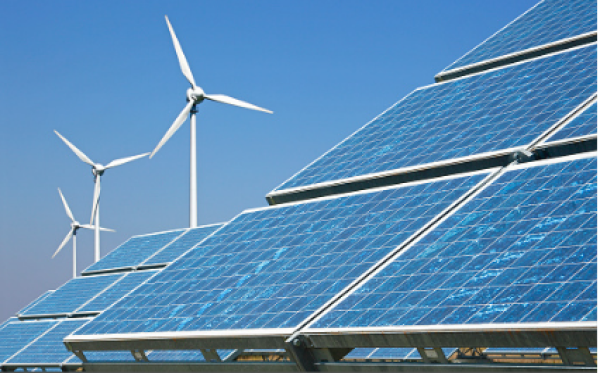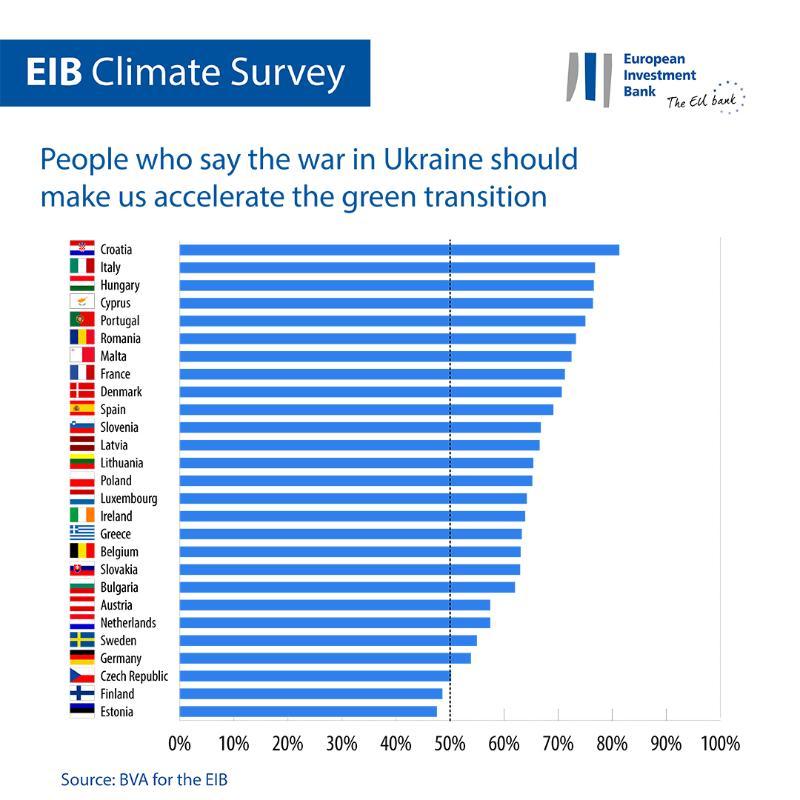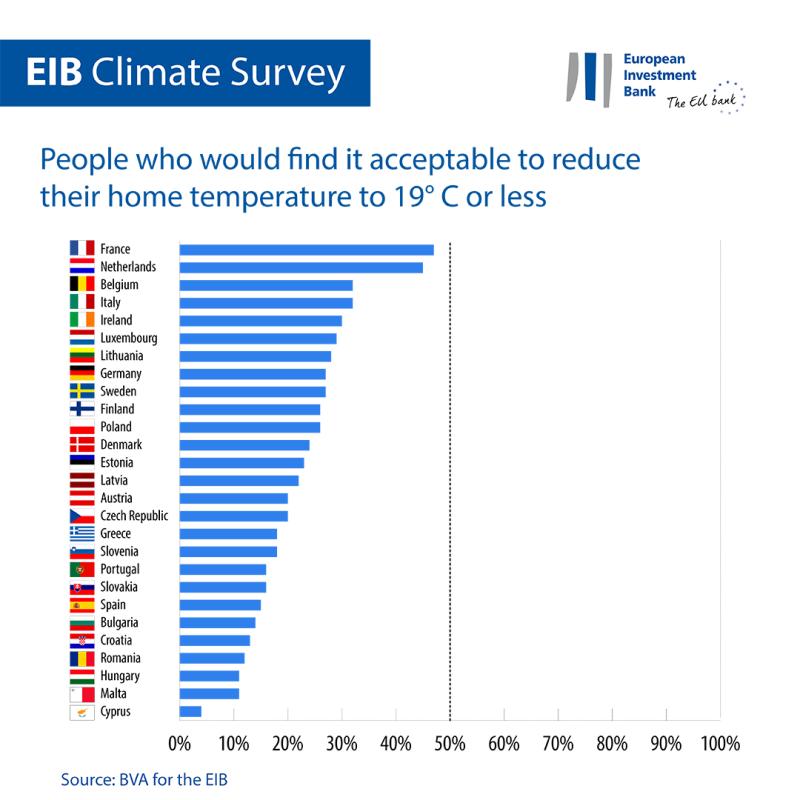
- 57% believe that the Russian invasion of Ukraine and its consequences should accelerate the green transition.
- 74% say that, if we do not drastically reduce our consumption of energy and goods in the coming years, we will be heading for a global catastrophe.
- 63% are in favour of indexing energy prices to the level of consumption per household.
- 61% want highly polluting goods and services, such as sport utility vehicles (SUVs) and air travel, to be more expensive to account for their levels of pollution.
These are some of the results from the latest yearly climate survey, conducted in August 2022 and published today by the European Investment Bank (EIB). The EIB is the lending arm of the European Union and the world’s largest multilateral lender for climate action projects.
After a challenging year in which Russia’s invasion of Ukraine sparked an ongoing energy crisis and accelerated inflation all over Europe, ongoing discussions on the nitrogen crisis and a summer marked by record heatwaves and droughts, Dutch people have become even more acutely aware of the impact of climate change and the need for urgent action.
Climate change awareness and urgency
While COVID-19 was considered the biggest challenge facing Dutch people last year, concerns about the financial crisis now predominate. 50% cite it as their top concern, compared with 45% across the rest of the European Union.
Meanwhile, nearly six in ten Dutch people (59%, the same percentage as in 2021) say they are feeling the impact of climate change in their daily lives (20 percentage points below Germany, where the proportion is 79%, and 21 percentage points below the European average of 80%). Moreover, 74% think that, if we do not drastically reduce our consumption of energy and goods in the coming years, we will be heading for a global catastrophe. Meanwhile, 79% feel that the government is reacting too slowly, and only 29% believe the Netherlands will succeed in substantially reducing its carbon emissions by 2030.
War in Ukraine and green transition
A majority of Dutch people (57%) believe that the war in Ukraine and its consequences for the price of oil and gas should accelerate the green transition (9 percentage points less than the European average of 66%).

When asked to rank their energy priorities, Dutch people expect their government to prioritise the development of renewable energies (42%), before focusing on energy supply diversification to avoid being overly reliant on a single energy provider (33%).
Energy saving also ranks relatively high among the government’s priorities. Dutch people say that citizens and companies must do more to reduce their consumption (25% compared with the European average of 19%).
Tackling climate change and addressing high energy prices
To reduce energy consumption, Dutch people are in favour of heavily taxing highly polluting goods and services, such as SUVs and air transport (61%). They also support the indexing of energy prices to the level of consumption per household (63%).
If Dutch people were to lower the temperature in their homes this winter, 45% of them would accept capping it at 19° C (while only 27% of Germans would accept doing so). Meanwhile, 20% of Dutch people say they already cannot afford to heat their homes properly.

The EIB’s Vice-President Kris Peeters stated: “Contrary to what one might see in the media, our annual climate survey shows that a large majority of Dutch people care deeply about climate change. Just ahead of the COP27 climate conference, the results indicate that Dutch citizens feel that renewable energy and energy efficiency measures should be prioritised with regard to the energy and climate crisis. Over the years, the EIB has supported many innovative clean energy investments, such as the construction of the Borssele wind farms and e-vehicle loading infrastructure, and ‘impact loans’ with lower interest for innovative small and medium-sized enterprises (SMEs). We stand ready to use our full range of advisory and financial instruments to support the Netherlands in a just green energy transition that leaves no one behind.”
Background information
About the EIB Climate Survey
The EIB has launched the fifth edition of the EIB Climate Survey, a thorough assessment of how people feel about climate change. Conducted in partnership with the market research firm BVA, the fifth edition of the EIB Climate Survey aims to inform the broader debate on attitudes and expectations in terms of climate action. More than 28 000 respondents participated in the survey in August 2022, with a representative panel of people aged 15 and above for each of the 30 countries polled.
About the European Investment Bank
Since 2019, the EIB has accelerated its transformation into a climate bank by committing to devoting at least 50% of its funding from 2025 to investments that contribute to the fight against climate change and the mitigation of its effects.
About BVA
BVA is an opinion research and consulting firm recognised as one of the most innovative market research firms in its sector. Specialised in behavioural marketing, BVA combines data science and social science to make data inspiring and bring the data to life. BVA is also a member of the Worldwide Independent Network of Market Research, a global network of some of the world’s leading market research and survey players, with over 40 members.